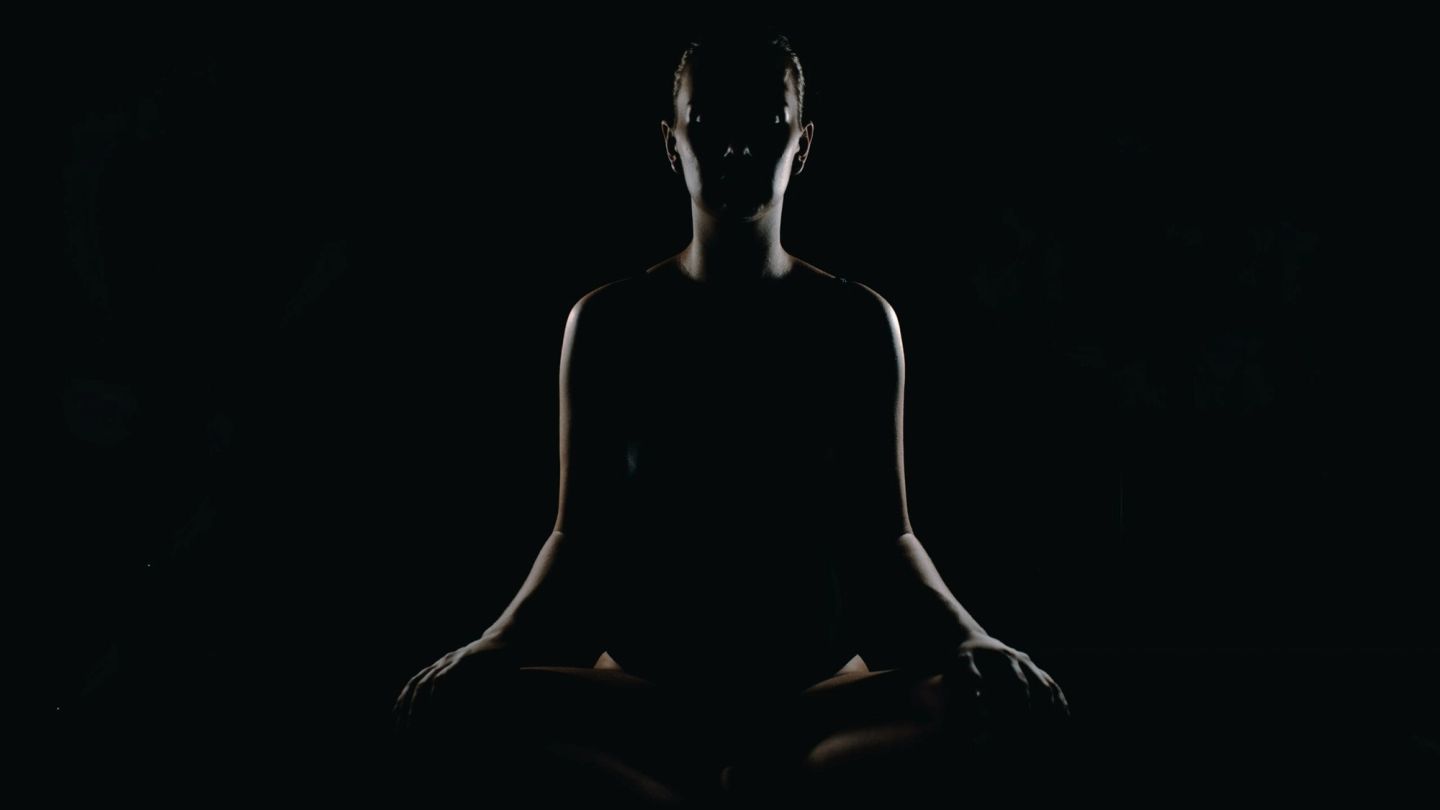

The actually useful guide to daily meditation
Because being mindful should never be mindless
Words: Gentleman's Journal
It’s held cultural significance for centuries, influencers force it upon us like gavage, Prince Harry and Twitter founder Jack Dorsey swear by it, and Mark in HR keeps reminding you to take a few minutes out of your day to slow down and breathe. But what are the actual benefits of meditation, and where should you begin in your search for calm?
To help you find respite from doomscrolling and shelter-at-home fatigue, we’ve cut through the noise to offer a no-nonsense beginners rundown of the ancient practice, from the benefits of maintaining regular meditation to the essential literature which we recommend you brush up on.
Why Meditate?
Meditation, to put simply, is one way in which to look after your health, both mental and physical. The scientific terminology behind its benefits can be a bit confusing, but we find that Headspace, a leading meditation app (more below), offers a succinct explanation.
According to its site, meditation can “decrease negative neurological connections to the medial prefrontal cortex”, a part of the brain which processes self-referential information, such as worrying about the future. Lowering the temperature on these links, in effect, tempers traits like anxiety and fear. Various other cogs may turn, too. One example being that the amygdala, which is key to how we mediate strong emotions — stress, for example — can also contract, as a result of meditation.
By contrast “new positive neurological connections to the parts of the brain” that produce positive qualities — focus, planning — can be formed. It is also proven that serotonin, a mood stabiliser, is released.
The benefits of meditation — which commonly include a reduction of fear, stress, and the like, as mentioned above — can vary. For instance, by lessening the burden of negative feelings, you may feel a sense of calm and stillness, notions that can help ease the professional and personal aspects of your life, whether that be Zoom fatigue; issues with focusing; homeschooling; or the vicious, borderless bed-to-desk circuit. Clarity of mind, another perk, might also help you feel more empathetic or compassionate towards others, leading to better relationships. Many also feel less volatile, as meditation sessions often aim to help people perceive aggressive or negative emotions as passing, ephemeral states of being.

The physical benefits from daily meditation are well documented, too. Stress is a major player in poking and prodding your sympathetic nervous system, which can trigger an influx of hormones that increase the body’s alertness and heart rate (otherwise known as your fight-or-flight response). One notable stress hormone is epinephrine (adrenaline), and too much of it can heighten the risk of strokes or heart attacks. Generally speaking, constant spikes of these stress hormones will disrupt sleeping patterns, lower your energy, negatively impact your immune system, and lead to unhealthy blood pressure. Successful meditation — meaning when your body is completely relaxed, and when its parasympathetic nervous system is prompted into action — will prevent the stimulation of these stress hormones.
But the benefits may not be obvious at first, and they may not be felt immediately. The first few times you meditate, you might find that your mind is restless, distracted, and drifts off. Moreover, you should know that meditation is not the be-all panacea to life’s complexities and worries, and not every session will leave you in nirvana. The overall aim is to help how you react to situations in a more productive way and process the clutter in your mind – and this will be achieved with regular, consistent practice.
Mindfulness v Meditation
It is common for mindfulness and meditation to be used synonymously. But they’re not quite the same thing.
Meditation often refers to a variety of practices that are undertaken during a set amount of time. Conventionally, it is aimed at improving concentration and self-regulation of the mind, but the goals and qualities can differ. And, as mentioned, it can also take many forms and techniques, including mantra-based meditation, whereby the practiser repeats a phrase or word in order to keep concentration. Other activities which have a positive impact on the body and mind, such as yoga, are also considered a form of meditation.
Mindfulness, in a snapshot, is the quality of being aware or engaging with what you’re doing while you’re doing it; it is the antithesis to being in cruise control. It can be practised both formally and informally, and is a variant of meditation. The aim is to be fully focused on the present, whether that means recognising your current thoughts and behaviours; engaging with an activity, such as drinking tea or stretching, without interruption or disturbance; or simply following your breath. According to professor Mark Williams, an ex-director of the Oxford Mindfulness Centre, it “allows us to become more aware of the stream of thoughts and feelings that we experience.” And, by doing so, we “see how we can become entangled in that stream in ways that are not helpful… This lets us stand back from our thoughts and start to see their patterns,” he says.
The Apps
Founded over a decade ago by one-time Buddhist Monk Andy Puddicombe, Headspace, one of the earliest apps of its kind, remains a crowdpleaser. Its clean, whimsical graphics are welcoming, and it will ground you in the fundamentals of meditation, with a particular focus on breathing exercises and reminders for you to mentally scan up and down your body. The library of lessons is both varied and accomplished, with courses such as ‘Politics without Panic’ (which is aimed at helping you manage feelings around elections and the like), ‘Meditate with Kids’ (part of which is made in collaboration with Sesame Street), and ‘Transforming Anger’ (which, the app claims, will guide you towards harnessing aggressive thoughts). You may also find the section for sleep to be useful: ‘Wind Downs’ are aimed to mentally prepare you for slumber, while ’Nighttime SOS’ is a set of exercises for when you wake up prematurely, which may come in handy during the rocky WFH times in which we now live.
Calm greets its user with the peaceful sonics of nature — perhaps a gentle stream — that can, somewhat, temper your mindset almost immediately after clicking its icon. We particularly enjoy Calm’s ‘Sleep Stories’, which are narrated by Matthew McConaughey (whose molasses-smooth voice can heal humanity) and the like, while the music section — which has exclusive tracks by Sam Smith, Moses Sumney and Sigur Rós — is a nice touch. The finger exercises on Pause – we enjoyed slowly tracing the movements of an on-screen dot — are useful, alternative ways to centre your attention. And Portal trades in ambient noises from around the world — you might be immersed in a barley field in Devon, or in the heart of an Amazonian thunderstorm. It also helped alleviate our wanderlust, and we recommend using it as background noise whilst working, if you lean towards that kind of thing.
The Music
Although undisturbed silence is often recommended for meditation, it should be taken as a suggestion rather than dogma. If you feel like to changing things up — and perhaps if you want to drown out the chatter of your partner’s team meeting while you try to create some headspace — you may find escapism in the instrumental-heavy, often lyric-less tracks of Explosions in the Sky. Likewise, Icelandic heroes Sigur Rós, of Hoppípolla fame, do the trick in helping you lose sense of time and place. Tangerine Dream’s no-vocals-no-nonsense approach is also laudable; their 1984 track ‘Love on a Real Train’ is particularly hypnotic.
The Literature
Davidji’s novice-friendly Secrets of Meditation: A Practical Guide to Inner Peace and Personal Transformation breaks down what can often by a complicated subject matter by both “demystifying” it and outlining its various forms, from energy meditation to chanting meditation. The Miracle of Mindfulness: An Introduction to the Practice of Meditation by Thich Nhat Hanh makes the case that insignificant daily moments, such as washing the dishes, possess the opportunities for appreciation, living in the moment, peace and self-improvement (mindfulness, essentially). “I clean this teapot with the kind of attention I would have were I giving the baby Buddha or Jesus a bath. Nothing should be treated more carefully than anything else,” he states. In When Things Fall Apart: Heart Advice for Difficult Times, Pema Chödrön, a renowned American Buddhist teacher, writes that suffering is something with which to confront and get close to – not something from which to run away. Finally, although not angled at meditation, readers might find connection and relevance in Louise Glück’s transformative, Pulitzer-Prize-winning The Wild Iris, whose subject matter of life and mortality — apt notions during the public health crisis — is told via poetry on flowers.
Read next: the best desk plants for your productivity


